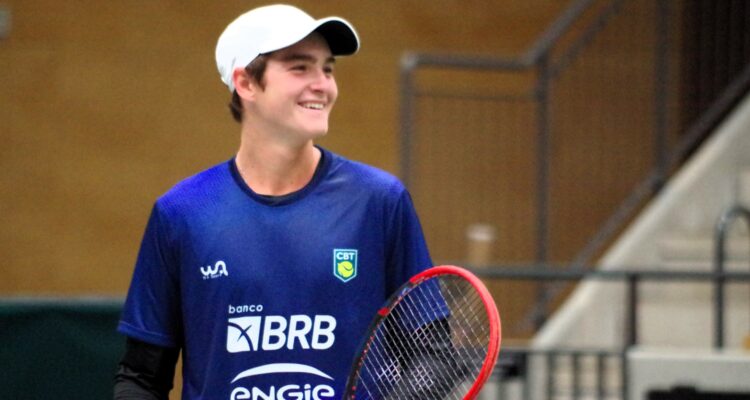ITF Media Release, August 21, 2025
Earlier this year, the Grand Slam Board announced the recipients of the 2025 Player Grants supported by the Grand Slam Player Development Programme (GSPDP). With annual contributions from the four Grand Slam tournaments and administered by the International Tennis Federation (ITF), the Programme assists recipients to gain international competitive experience.
Since the announcement in January, many of the 56 recipients have gone on to achieve breakthrough results, national firsts and ranking improvements across ATP and WTA Tours and the ITF World Tennis Tour Juniors.
Brazil’s Joao Fonseca, one of the two US$50,000 grant recipients, became the youngest Brazilian player in the Open Era to win an ATP title at Buenos Aires, aged 18 years, five months and 26 days. Fonseca also announced himself on the Grand Slam stage by defeating world No.9 Andrey Rublev at the Australian Open in straight sets.
Côte d’Ivoire’s Eliakim Coulibaly, 23, made history as the first player from the West African country to win an ATP Challenger event, while Rodrigo Pacheco Mendez, became the youngest Mexican to win a Tour-level match since 1996, at age 19. Hong Kong, China’s Coleman Wong, 21, also delivered a milestone moment by becoming the first player from his nation to defeat a Top 20 opponent, overcoming Ben Shelton at the Miami Open.
On the women’s side, Alexandra Eala, 20, of the Philippines made history by defeating three Grand Slam champions, contesting her first WTA final and breaking into the Top 60 – the first Filipina to achieve each milestone. Argentina’s Solana Sierra, 21, added her own breakthrough by becoming the first lucky loser to reach Round of 16 at Wimbledon 2025.
Progress has also been reflected in the rankings. Six 2025 grant recipients have entered the Top 100 this season – with Joao Fonseca (BRA), Hamad Medjedovic (SRB), and Jaime Faria (POR) in the ATP Rankings – and Alexandra Eala (PHI), Anca Todoni (ROU) and Solana Sierra (ARG) in the WTA Rankings, underlining the programme’s objective to help players from developing tennis nations break into the elite level.
At junior level, two players from the 2025 cohort of grant recipients have won Grand Slam singles titles: Bulgaria’s Ivan Ivanov, 16, won the boys’ singles title at Wimbledon and climbed to world No.1 in the ITF junior rankings, while Austria’s Lilli Tagger, 17, won the girls’ singles title at Roland-Garros.
The GSPDP also funds junior touring teams, enabling players from developing tennis nations to play at the junior Grand Slam tournaments and other elite-level junior events. Touring team member Oskari Paldanius, 18, of Finland, won the boys’ doubles title at both Roland-Garros and Wimbledon alongside partner Alan Wazny, 18, of Poland. The ITF has published a short film documenting Paldanius’ experiences at the J300 Roehampton tournament, held prior to Wimbledon, this week.
Now in its second year supporting emerging wheelchair tennis talent, the GSPDP continues to elevate the next generation of international players. In 2025, the programme supports 12 athletes from 11 countries, several of whom have recorded impressive results in both junior and professional tournaments. Five players competed in junior draws at Grand Slam events, while three (China’s Zhenxu Ji, Argentina’s Gonzalo Enrique Lazarte, and Israel’s Sergei Lysov) featured in the men’s wheelchair singles main draws at Grand Slam tournaments, highlighting the programme’s role in bridging junior and elite-level competition. Across Futures and Junior Series events, players claimed multiple international titles and achieved career-high rankings, demonstrating the programme’s continued impact on performance development and international exposure.
Administered by the ITF on behalf of the Grand Slam tournaments, the GSPDP has contributed more than US$65 million to international tennis development since its inception in 1986. By providing funding and pathways for players from under-represented regions, the programme ensures the next generation of talent has the opportunity to compete at the highest levels of the sport.







